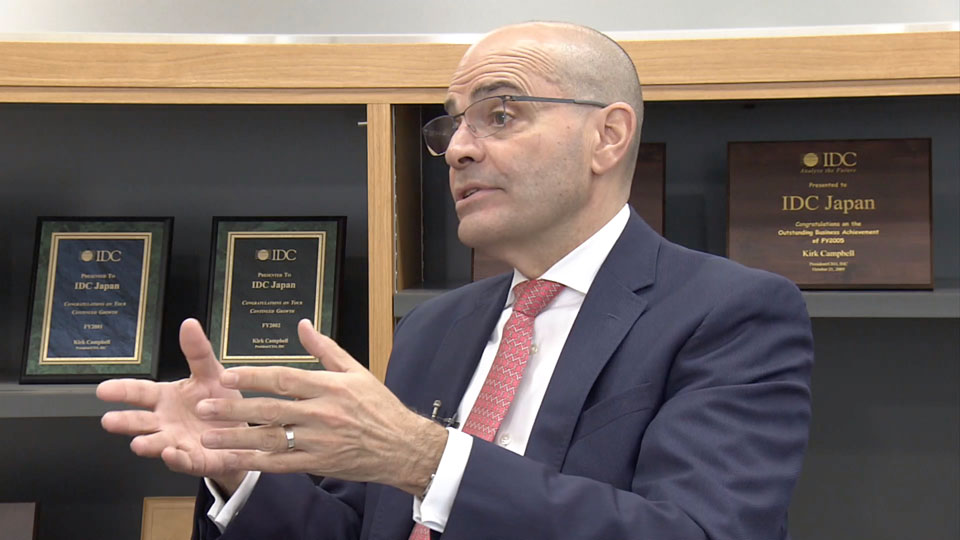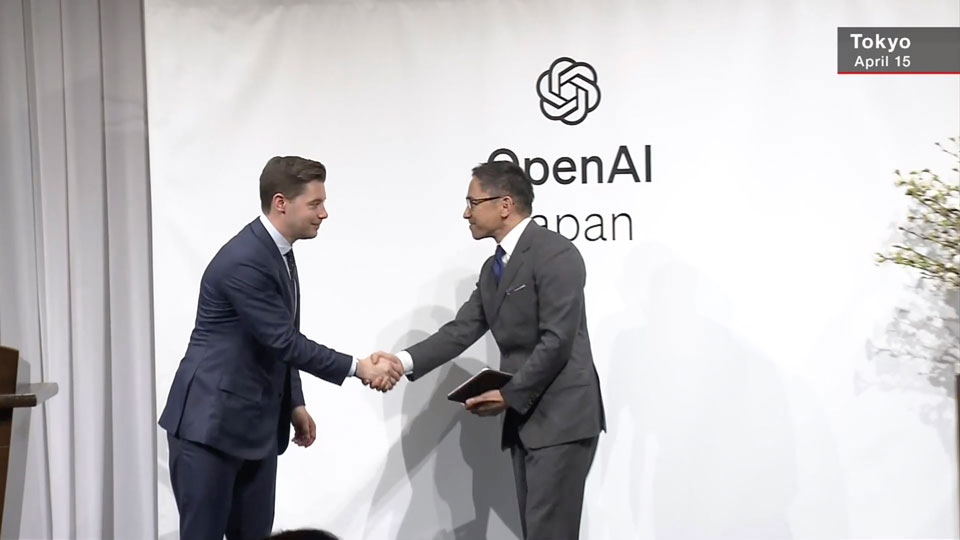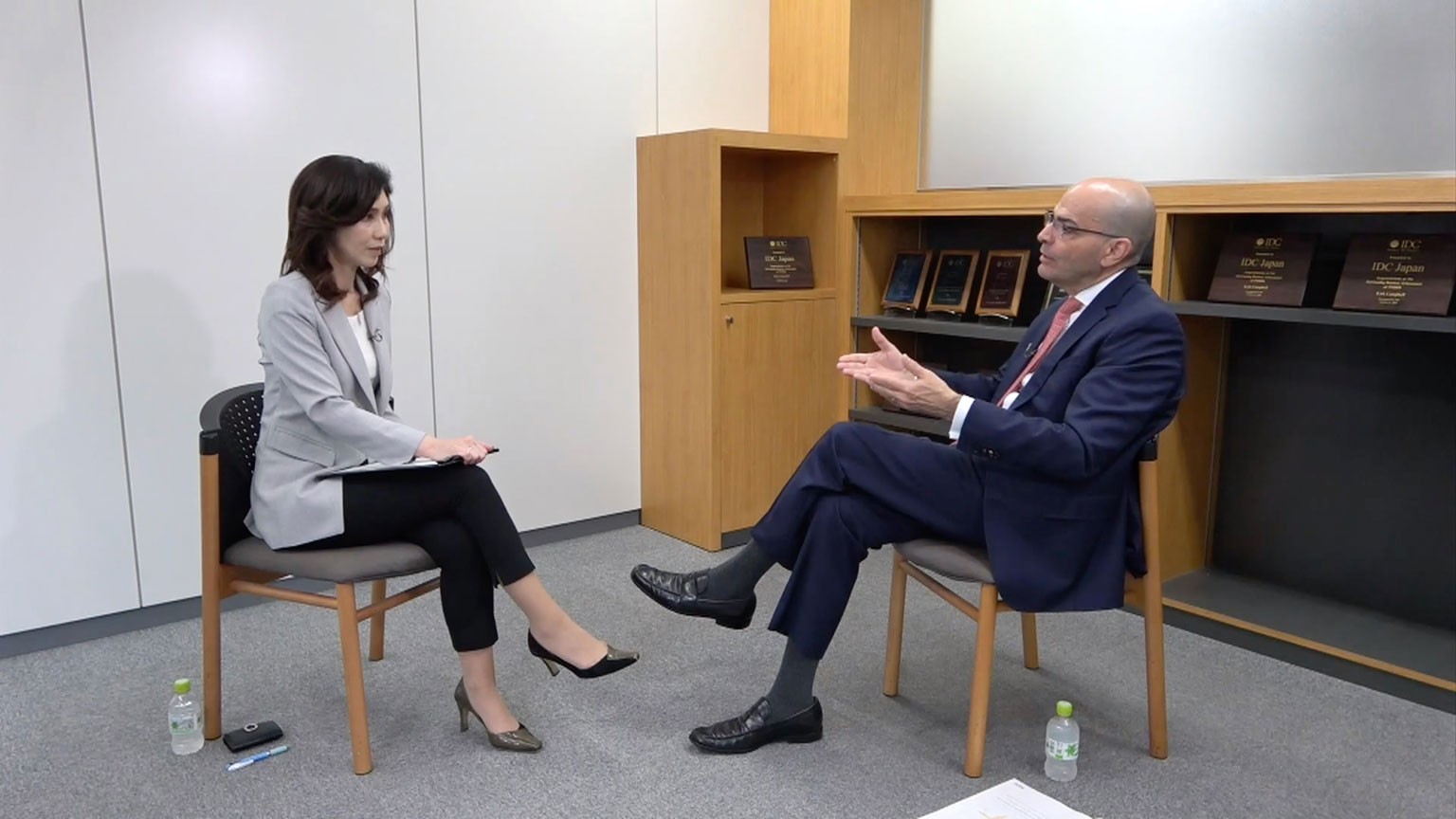Crawford Del Prete, president of International Data Group, says that in the next two years, AI will change our lives to the same extent that smartphones transformed the travel industry, transport sector, and online shopping 15 years ago.

He says AI is likely to disrupt a much wider range of industries—it will improve efficiency in nursing care, for example, and make it possible to address security threats faster and more effectively.
Implications for Japan
In April, OpenAI opened an office in Tokyo. Microsoft, Amazon and Google are also spending heavily in Japan, plowing money into data centers and expanded facilities. Del Prete says the investment is testament to the enormous demand that Japan is expected to have for the fast-evolving technology.

His company forecasts that the Japanese market for AI will grow by over 30% in market value this year. He says that's a pace consistent with the growth they expect to see around the world, but that there are several factors that make Japan's situation unique.
One of them is a culture where new technologies tend to be adopted relatively quickly. Another is that Japan is struggling with an aging population. With a smaller labor force, companies are more motivated to increase productivity.
But Del Prete says it won't necessarily be Japanese companies cashing in on this new demand. He says Japan has always been competitive in hardware but not so much in software, and Japanese AI firms will be competing against major software firms and international AI platforms. But, he says, ultimately it's a brand new market and an opportunity for all.
Risk factors
Del Prete also addressed the growing concerns surrounding AI. Creators say it could infringe on copyright. Security authorities warn it will be very hard to spot “deepfake” media, which could exacerbate investment fraud and undermine elections, among other things. And corporate brands are already being used to promote things they have no connection with.
Governments are considering laws to try to mitigate these problems, but the EU was first out of the blocks. Last month it approved the world's first comprehensive law limiting the use of AI.

Del Prete says both governments and companies have learned a lot from the internet era, where setting technology loose without first considering the risks opened up vulnerabilities and lead to crime.
He says although policymakers don't know exactly what or how to best regulate outcomes brought about by AI, they know from experience that restrictions are essential.
He says companies will be faster than countries in setting up guardrails, and he forecasts that by the end of 2025, a quarter of companies in the Global 2000, a ranking of the world's largest firms, will have put oversight boards in place to assess the impact of generative AI.
Del Prete says it is essential to monitor the impact of the technology and respond with speed and agility as the risks are just too high if we fail.

